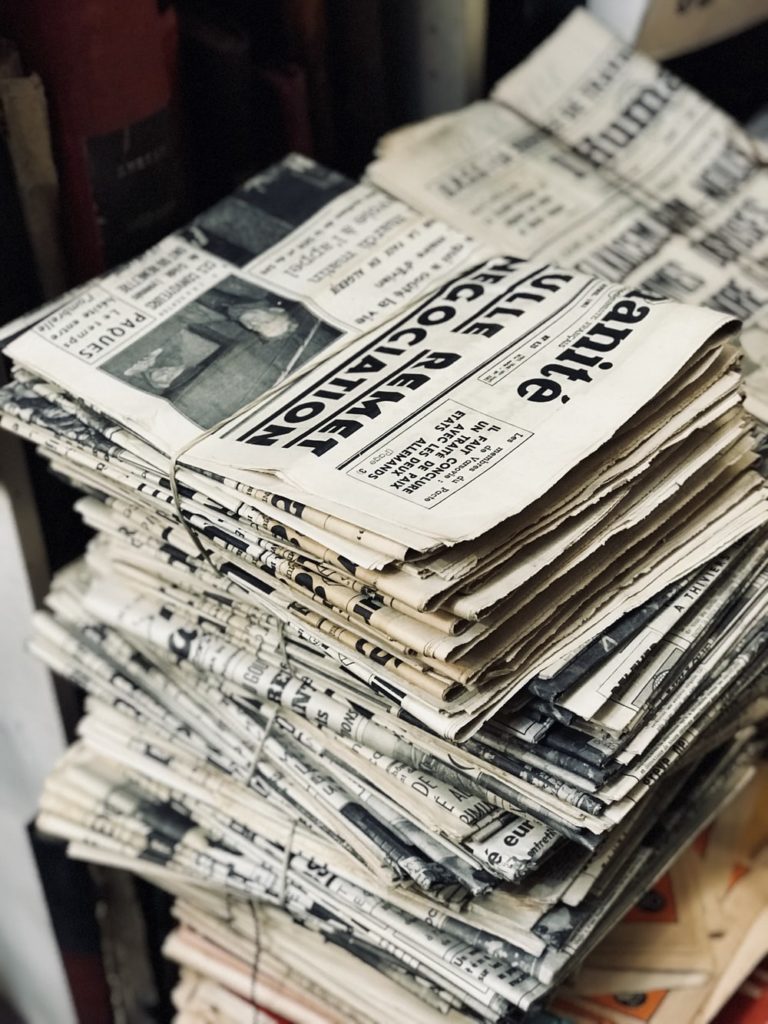
If you’ve been working on your family tree for a while, you’ve probably turned to newspapers at some point while looking for obituaries. However, many new researchers don’t realize that newspaper archives are an absolute treasure trove for those trying to find valuable information about their family history.
Newspapers have everything from birth, marriage, and death-related notices to information on significant events. This can give your research depth and help you see the historical context. Town newspapers also have details about local events, including county fairs and so on. And, you may even find passenger lists in them!
But it’s important to realize that there are centuries worth of newspapers to look through – so you’ve got to be smart about it.
Here’s what we suggest you do.
Prioritize Surnames in Your Research
Focus on surnames – if you try using your ancestor’s first name, you’re going to complicate things for yourself unnecessarily. So unless the person you’re looking for has a really unusual given name, stick with the surname to start..
Importantly – try different spelling variations of the same surname—this just might help your search. Also, be aware that OCR – optical character recognition— which is the method by which most newspapers have been digitized has its limitations. . Because it can misread letters on old faded newspapers, so you might want to try name variations by substituting letters with similar shapes. For instance, if your ancestor is Gregson, you should try substituting the g in the middle with a y and type Greyson instead.
Factor In The Possibility Of Delayed News
Nowadays, with online newspapers and far better communication methods, you can get news updates the same day or the very next day. But things were very different back in the day.
The news could be delayed for days, if not weeks. So, if you’re looking for news about a specific event, look in all the newspapers that came out at least a month following the event. Because there was no telephone those days, newspapers often took a while to report detailed accounts and developments in a story.
Don’t Forget That Newspapers Are from That Period And Not Records Created Later
One of the best things about researching old newspapers is getting the information in its rawest form. Since they’re meant to deliver news, they are super authentic and accurate—you can at least rest assured that the information isn’t distorted with time.
But that being said, for the same reasons mentioned above, old newspapers aren’t in line with the modern language or terminology we’re familiar with. For instance, what we know as WWI now was simply known as “the War” or “The Great War.”
Moreover, newspapers from back in the day also reflect the norms from that era. For example, people’s personal details are typically not mentioned in newspaper stories today, but this wasn’t the case in the past. Newspapers reported anything and everything with complete details, no matter how personal—which actually works in your favor as a family researcher! Beyond the news – many local newspapers published a great deal of information about social events – this is a great way to learn about your ancestors’ daily lives!
Newspaper archives are tremendous assets, but we can’t possibly fit the several tips and techniques we’ve discovered over the years in one blog.
But if you need to learn more, feel free to reach out to us at DavisDNA And Family Research.
We can help you with anything from DNA testing for Ancestry to traditional genealogy services.
Call us for more information.
